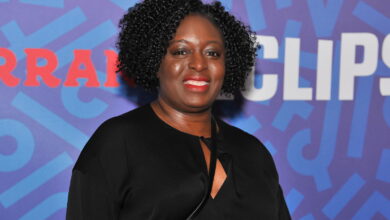A Hedge Against Uncertainty in a $2.1T Market

The rise of Black-owned beauty and tech entrepreneurship is not just a cultural phenomenon—it’s an economic force with the potential to disrupt global markets while offering investors a shield against geopolitical instability and inflation. With Black consumer spending power projected to hit $2.1 trillion by 2026, the fusion of beauty innovation and AI-driven tech is creating a dual-pronged opportunity. Here’s why backing Black innovators could be one of the most strategic investments of the decade.
The Beauty Sector: Disrupting Markets and Shifting Power Dynamics
Black-owned beauty brands like Fenty Beauty, Briogeo, and Madison Reed have shattered industry norms by prioritizing inclusivity, quality, and representation. The 2024 Essence Festival of Culture highlighted this growth, with Black beauty spending reaching $10.2 billion annually—a figure driven by demand for products tailored to diverse skin tones and hair textures. This isn’t just niche marketing; it’s a $2.1T market demanding authenticity.
Investors should note that beauty giants like L’Oréal and Unilever are acquiring Black-founded brands (e.g., Fenty Beauty’s $1.5 billion valuation) to tap into this demographic. But the real disruption lies in consumer-direct brands like Glossier or The Lip Bar, which leverage digital-first strategies to avoid traditional retail gatekeepers. For instance, Glossier’s 2023 revenue hit $180 million, with 35% of its customer base identifying as Black or African American—a testament to the power of inclusive branding.
Tech Innovation: AI, Equity, and the Next Wave of Disruption
While beauty is a proven winner, the tech sector offers even higher upside. The 2025 Invest Fest, a Black-founded tech conference, showcased startups using AI to solve everything from healthcare diagnostics to climate resilience. For example, Zipline, a Black-led drone delivery startup, secured $250 million in funding to revolutionize medical supply chains in Africa—a market untouched by Silicon Valley giants.
The $260 billion spending shift Black consumers could direct toward inclusive brands (per Nielsen) isn’t just about beauty—it’s about tech adoption. Black consumers are 35% more likely to own 5G devices and 21% more likely to use AI-driven apps, per 2024 data. This tech-savvy demographic is primed to adopt innovations like healthcare chatbots or AI-powered financial apps, creating opportunities for startups like CureApp or Blavity Tech.
Economic Resilience: How Black Entrepreneurs Outperform in Volatile Markets
Black-owned businesses have historically thrived in uncertainty. During the 2020 pandemic, Black entrepreneurs saw a 400% increase in online sales as consumers shifted to digital platforms. The 2024 Essence Festival’s $346 million economic impact—despite post-pandemic headwinds—proves this resilience. Even as ticket sales dipped slightly in 2025, the festival’s Pipeline Initiative, which funneled contracts to Black-owned service providers, created 2,642 local jobs, illustrating how community-centric models outlast short-term market shocks.
In tech, Black innovators are addressing systemic gaps. Blavity’s AI platform, for instance, connects Black professionals to employers, reducing unemployment disparities. Such ventures aren’t just socially impactful—they’re profitable. A 2023 McKinsey report found that companies with diverse leadership outperformed peers by 35% in profitability during recessions.
Investment Strategy: Where to Place Bets Now
-
Consumer Goods: Partner with Black Brands
Invest in multinationals (e.g., LVMH, Estée Lauder) that acquire or partner with Black-owned beauty brands. Alternatively, back private equity funds like The New Markets Venture Fund, which focuses on scaling Black-founded businesses. -
Tech Venture Capital: The Next Unicorns
Allocate to venture capital firms like Kapor Capital or Backstage Capital, which fund Black-led tech startups. Look for AI-driven platforms in healthcare, fintech, or climate tech—sectors where Black innovators are already leading. -
Event-Driven Opportunities
The Essence Festival and Invest Fest are catalysts for partnerships. Companies like Walmart (which saw 2024 sales rise by 12% among Black consumers) or IBM (partnering with Black AI startups) exemplify how mainstream firms can profit by aligning with these ecosystems.
Risks and Mitigation
Critics argue that systemic barriers—like unequal access to capital—limit Black entrepreneurs’ scalability. The 2024 Essence Festival’s $70 million revenue leakage to non-local businesses underscores this. However, initiatives like Invest Fest’s Black Innovators Hub (which connects startups to global investors) and the Pipeline Initiative’s job-creation model are closing the gap.
For investors, the key is diversification. Pair exposure to Black-owned beauty and tech with broader sector plays—e.g., tech stocks like NVIDIA (powering AI) or consumer staples like Coca-Cola (leveraging Black consumer trends). This blend mitigates risk while capitalizing on demographic tailwinds.
Conclusion: The Future is Black, Beautiful, and Disruptive
Black-owned beauty and tech entrepreneurship isn’t a passing trend—it’s a structural shift. With $2.1 trillion in consumer power and tech adoption rates outpacing the general population, Black innovators are redefining markets. For investors, this is a rare chance to profit from both equity and resilience. Backing these ventures isn’t just ethical—it’s a hedge against uncertainty in a world where geopolitical tensions and inflation are constants. The next trillion-dollar industry might already be in a Black founder’s garage.
Source link




